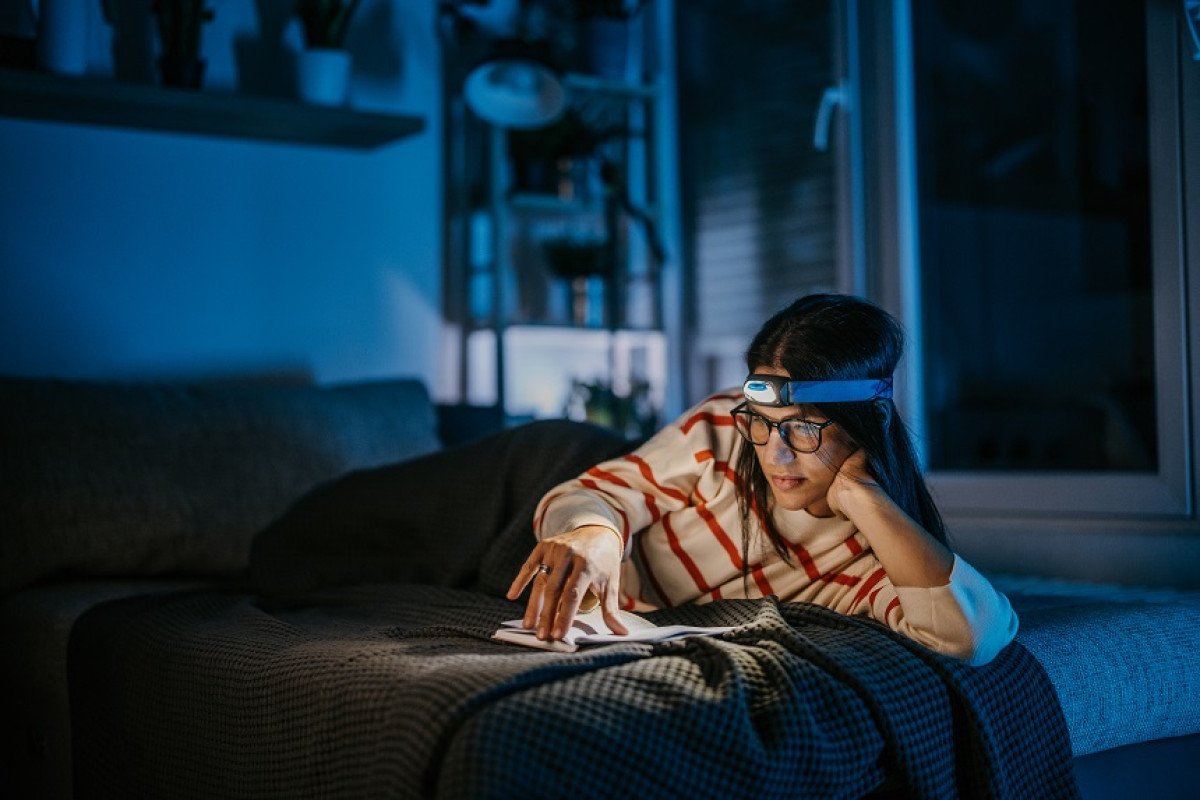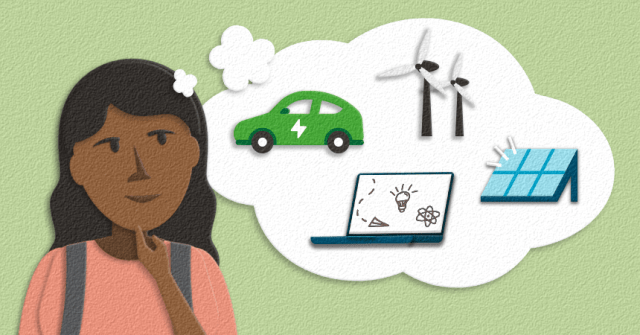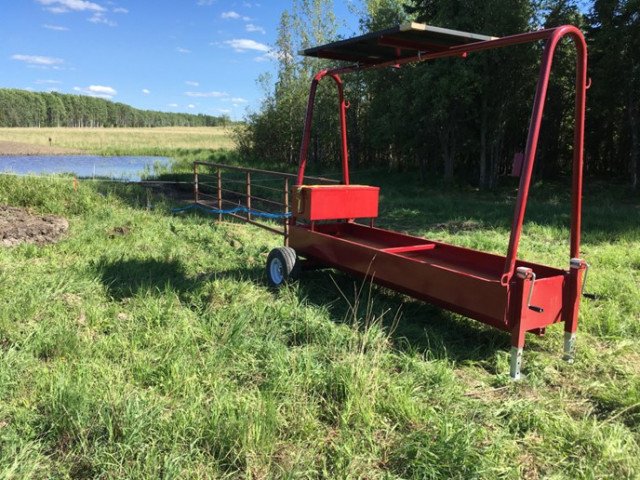It may seem like rescuing an injured person from a car that has slammed into a power pole is the right thing to do. But with a little knowledge, and some critical thinking, we can conclude that it's dangerous and could be fatal.
Similarly, there are a lot of ways to stay warm, fed, and comfortable during a power outage. But some actions that might seem like a good, creative solution to a problem can be counterproductive or dangerous. Most decisions come down to common sense, but consider challenging your students to apply critical thinking to a number of potential options and actions for enduring a power outage or other emergency.
Here's a list of 10 things you shouldn't do during a power outage, with suggestions on how to apply B.C's core competency around critical thinking and reflective thinking.
1. Don't use candles
At first glance, using candles to provide light during a power outage may seem like a great idea. They require no electricity, can be long lasting, and can provide a fair amount of light.
But candles can easily be knocked over by pets or kids, or can set fire to combustible objects near them. The Government of Canada says that while nationwide candle fire statistics aren't available, it's estimated that there were nearly 800 candle fires in Canada each year between 1998 and 2008, with a yearly average of eight fire-related deaths, 115 injuries, and $262 million in property damage.
Ask your students whether they think using candles is a good idea, then discuss other lighting options. The advancement of LED lighting has made flashlights and lanterns far more efficient and long-lasting. The solution is to store several around your home as part of your preparation for a power outage.
Did you know? Every B.C. household should build or buy a 72-hour emergency kit. Here's the top 5 things for your emergency kit.
2. Don't grill indoors
That camp stove can be a practical option for cooking food once the power's out. Ditto for the gas barbecue. But why is it a bad idea to take them indoors, even on the coldest of days?
A gas grill or camp stove should never be used indoors, and that includes in the garage. Propane and natural gas barbecues should only be operated in well-ventilated areas, as carbon monoxide from the gas can build up in a room. They're also poorly insulated, and are a significant fire hazard.
Ask students a simple "Safe or not safe?" question around using a barbecue indoors. Then shift the discussion to ways to stay warm when the heat is off in a home. Talk about how wearing thick socks, slippers or light shoes help keep you warm, along with the layering of sweaters and hoodies, and getting cozy together under blankets.
Did you know? Shared body heat matters. The Skeena student residence at UBC's Okanagan campus is so well insulated that on the coldest days of the year, more than a quarter of the heat required for the building is supplied by students’ body heat.
3. Don't go near pooling water
When it's safe to go outside, a little exercise is a good idea. But if there's been a lot of rain and pools of water have formed, you'll need to be extra careful not to get into a potentially dangerous situation involving power lines and water.
Water is an excellent conductor of electricity. You can become electricity’s path to the ground if you're touching water that touches electricity. Electricity would travel through the water and through you to the ground.
Ask your students why playing in a pool of water following a rainstorm in your neighbourhood during a storm-related power outage is dangerous if that water is anywhere near a power line. And while you're at it, remind students to remain at least 10 metres away – the length of a school bus - from any downed power line. You should always assume lines are energized, even if it appears the power is out in your neighbourhood.
4. Don't waste your phone battery
No TV and no wifi. What's a kid to do to relieve the boredom during a power outage?
If your smartphone has a good data plan, you may be tempted to entertain yourself with TikTok, view videos, or listen to music? Ask your class why that's not a great idea.
Unless you've been assured by bchydro.com/outages that BC Hydro crews are close to restoring power in your neighbourhood – check to see what the "estimated time on" is for the outage – save battery power on all phones in your household. In an extended outage, it's possible that parents – checking for news and updates, checking on the safety of family and friends – can drain their phone batteries. And that's where a kid's smartphone can become pivotal.
Ask students to consider other options to pass the time during a power outage. If it's daytime, light through windows should be bright enough to allow for reading a book, playing a board game, or creating artwork. Also consider asking them why using a laptop to watch downloaded movies or music might not be a great idea either. Laptops can be used to charge a phone's battery or to charge a rechargeable lantern, so it's best to not drain them either.
5. Don't open the fridge repeatedly
You're going to get hungry, and some of what you need will be in the fridge. But why is it not a good idea to repeatedly open the fridge?
In an extended outage, the more times you open your fridge, the more cool air escapes. That will decrease the length of time the fridge will be able to prevent your food from spoiling. Carefully plan what you're going to take from the fridge, and as you get hungry, eat perishable items in your fridge first before moving on to canned and dry items in your cupboards or emergency kit.
Also consider:
- If you have a deep freezer, cover the freezer with blankets, quilts or sleeping bags to further insulate the freezer and help keep food frozen longer.
- As an outage extends past a few hours, try placing bags of ice or freezer packs – if you have any in your freezer or can get some from outside your home – in your fridge. Or if you plan to eat perishables such as leftovers, meat or vegetables over the next day, place them in a cooler or ice chest.
Try this question with students: Why is it a good idea, throughout the year, to fill cleaned two litre plastic pop bottles with water to the three-quarter mark and put them in your freezer? The answer is that when your freezer isn't full, filling it makes it more efficient. In an outage, a full freezer (or fridge) stays colder longer. And when the ice thaws, you'll have drinking water. Just make sure to only fill those bottles to three quarters to allow for expansion as water turns to ice.
6. Don't leave appliances and devices plugged in
There's a strategy around what to turn off, and what to leave on, during a power outage.
You're going to want to turn off or unplug all appliances, especially those that generate heat. This helps prevent injury, damage or fire when the power is restored. But there are two things you want to turn on: one interior light, and one exterior light.
Ask your class why it makes sense to leave those two lights on. Discuss how the inside light will let you know when your power is back on, and the exterior light (best on the side of your house facing the street), will alert BC Hydro crews when your power is restored.
7. Don't let your pipes freeze
This one applies mainly to homes in the interior and north of B.C., but it can also be a good tip during a cold snap on the south coast of B.C. On Dec. 8, 2021, the temperature at Vancouver International Airport dipped to -12oC.
Start by asking your students why, during a power outage in the middle of winter, the water pipes in your home could freeze. Then discuss what you can do to ensure they don't freeze when temperatures outside are below zero.
Once your home is without power for an extended period of time and the inside temperature plummets, water pipes can freeze, and when that water turns to ice and expands, it can potentially burst a pipe. While pipes in newer homes are likely to be well insulated, there are two key steps to ensure pipes in older homes – especially in the basement, exterior walls, and the garage – don't freeze during a power outage in extremely cold weather:
- Wrap uninsulated pipes with foam, old blankets, or towels
- Keep your taps running – just a trickle should do it – to reduce the risk of freezing.
Ask your class: Where can you find examples of where standing water freezes, and running water doesn't? Discuss how as temperatures dip below zero, the surface of puddles, ponds, and lakes can freeze over, while creeks and rivers – except in the coldest parts of B.C. – don't freeze.
Activities and resources for exploring outages and emergency preparation in class
Here are some in-class activities that provide specific information around a range of safety-related measure during power outages.
How far is 10 metres? (Grades K, 1)
Students learn how to shuffle away 10 metres from a downed or damaged power line by imagining a school bus to estimate the distance.
Winter storm safety (Grades K, 1)
Students compare the differences between summer and winter weather. Learn about electricity and how to get prepared for power outages and to stay safe around downed power lines.
Get prepared (Grades 2, 3)
Using a drama activity to create the sounds of a rainstorm in the classroom, students then imagine going outside after a storm, learn to stay safe around downed power lines, and play a game that helps them discover what goes in an emergency kit.
Power's out: Surviving three days without electricity (Grades 6, 7)
Small groups brainstorm what life would be like without power for up to three days, craft a plan, then take a copy of the plan home to their parents.
Social media storm safety messages (Grades 8-12)
Students learn about how to prepare for a power outage, then craft a social media message, video, or graphic that shares a safety message.






